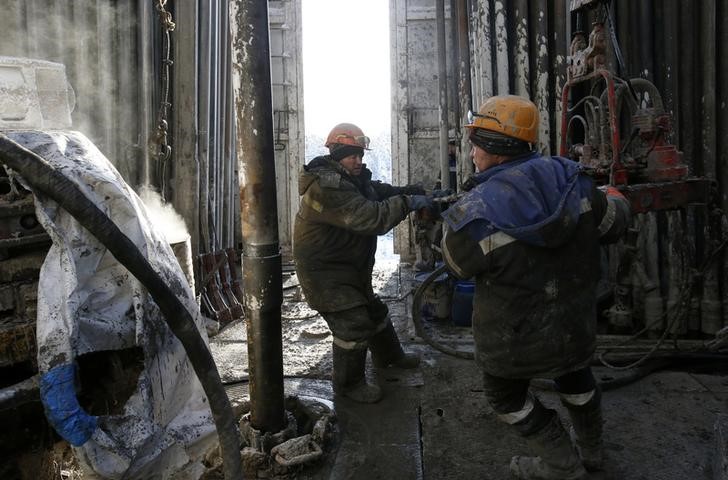Investing.com — Oil prices rose on Tuesday, recovering a measure of steep losses from the prior session, although caution ahead of upcoming U.S. inflation data and the conclusion of a Federal Reserve meeting kept markets on edge.
Crude markets were nursing their worst loss in nearly two weeks as concerns over sluggish demand, worsening economic conditions and a potential boost in Iran-driven supply largely countered the prospect of tighter production after a Saudi cut last week.
Prices saw little scope for recovery as traders remained cautious ahead of key U.S. inflation data and a Fed meeting, due on Tuesday and Wednesday, respectively.
Fed, inflation anticipation limit oil recovery
futures rose 0.5% to $72.20 a barrel, while futures rose 0.3% to $67.33 a barrel by 22:07 ET (02:07 GMT). Both contracts slumped between 3.5% and 4% on Monday.
Focus was now squarely on U.S. inflation data, due later in the day, which is in turn expected to factor into a on Wednesday.
While markets widely expect the Fed to pause its rate hike cycle, recent strength in the labor market and signs of relatively high inflation kept traders wary of any hawkish surprises from the central bank.
Rising interest rates pressure economic activity, which in turn dents oil and fuel demand. Crude markets were sold off heavily this year on that notion.
Even if the Fed pauses its rate hike cycle, U.S. rates are expected to remain higher for longer this year, pressuring activity. Strength in the dollar, amid high U.S. rates, is also expected to weigh on crude markets.
Demand, supply uncertainty in play
Fears of worsening demand kept traders cautious over buying into crude, following a string of weak economic readings from major economies in the past few months.
Concerns over China have weighed heavily on oil prices in recent months, as investors questioned whether a post-COVID economic rebound was running out of steam.
Weak economic prints from the U.S., coupled with signs of a recession in the euro zone also brewed more concerns over demand this year.
On the other hand, the potential of a U.S.-Iran nuclear deal also kept traders cautious over increased supply, especially as Iran’s supreme leader signaled some openness to reaching an agreement.
Still, both Tehran and Washington denied recent reports that a deal was close.
Read the full article here
